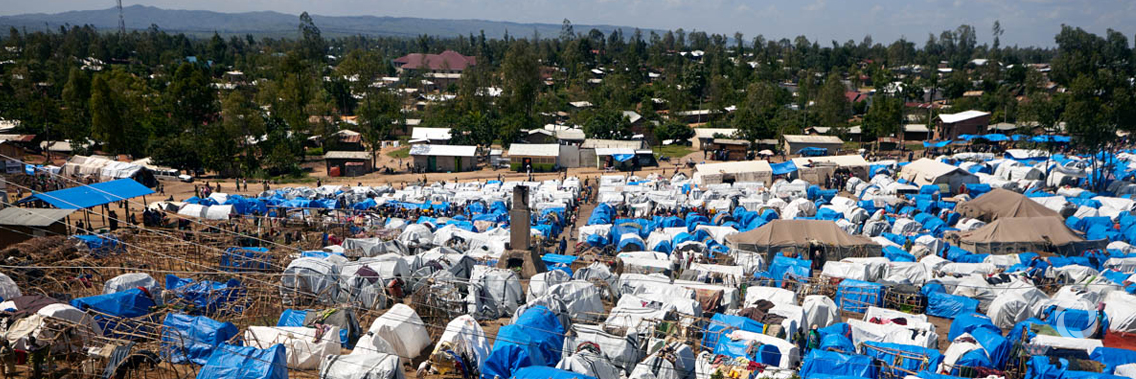Renewed violence in the eastern Democratic Republic of the Congo (DRC) region that is struggling to contain the on-going Ebola outbreak, has claimed the lives of at least 160 people and displaced hundreds of thousands of others, further complicating the response to the public health emergency.
“The people who fled the frontline of the conflict are living in dire conditions,” said Fabien Sambussy, IOM Chief of Mission in DRC.
“Humanitarian actors urgently need access to provide assistance and prevent further massive displacement. We are increasingly concerned that rising displacement creates fertile ground for the spread of disease – most worryingly Ebola – in Ituri province.”
According to the President of the Democratic Republic of the Congo, Felix Tshisekedi, who visited the area recently, an estimated 400,000 persons are currently displaced throughout Ituri Province.
Djugu Territory has seen a 135 percent rise in displacement with 20,000 new internally displaced persons (IDPs) registered last month in 12 displacement sites managed by IOM, which has provided Camp Coordination and Camp Management (CCCM) and shelter services since 2018. Thousands more are sheltering in spontaneous sites.
“Efforts are ongoing to mobilize the necessary resources to determine the number of people displaced and their whereabouts,” added Sambussy, referring to IOM’s Displacement Tracking Matrix (DTM). “Our humanitarian and government partners can use this data to better target and assist affected populations.”
A plan to relocate IDPs to a new settlement on land owned by Bunia’s Catholic Diocese is currently underway.
The 120,000 square meter plot offers favourable conditions for the safe and dignified relocation of IDPs. IOM is mobilizing the financial resources required to start land development as well as the rapid relocation of IDPs exposed to public health hazards and other protection risks.
IOM CCCM operations in DRC are funded by the Governments of Sweden and Canada. Ebola activities are funded by USAID/OFDA and the World Bank.
Original source: IOM
Published on 05 July 2019

